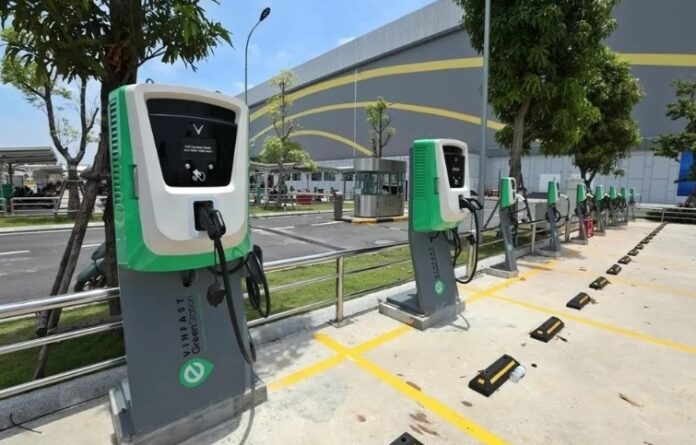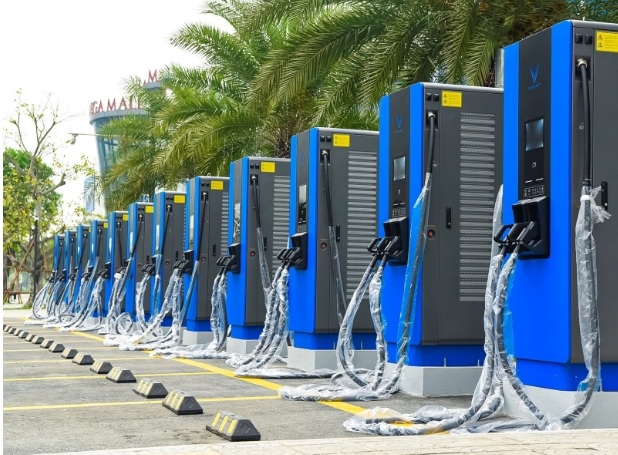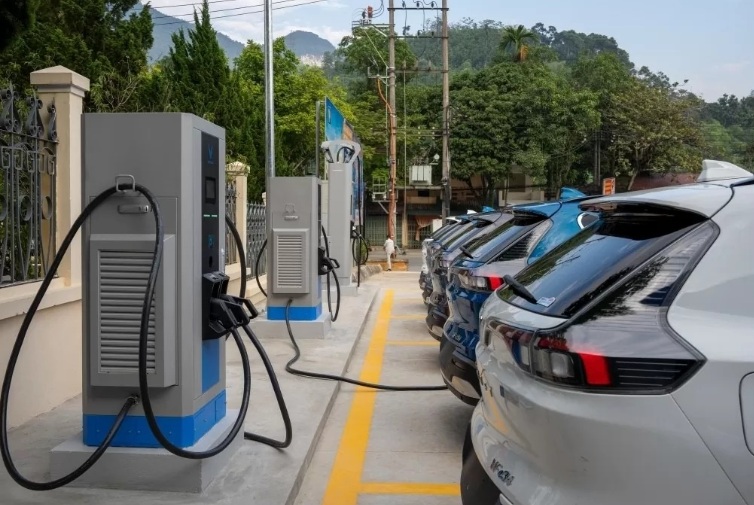The recent rapid growth of the electric vehicle market in Vietnam has led to an increased demand for public charging stations.
However, in reality, besides VinFast’s charging network, the charging infrastructure is still fragmented, lacking uniformity, and with inconsistent pricing, causing inconveniences for users.
Currently, most public charging stations in Vietnam are owned by V-Green, the company operating the charging infrastructure for VinFast vehicles. As of March 2025, V-Green has established over 150,000 charging ports across 34 provinces, becoming the largest network in the country. However, this system exclusively serves VinFast vehicles and offers free charging until mid-2027, and is incompatible with other brands.
With the increasing entry of foreign electric vehicle manufacturers, especially from China, third-party public charging stations serving various brands, including VinFast, have started to emerge. Nonetheless, this system is still sparse, with limited coverage, and pricing varies by region, power output, and charging hours.
For instance, Charge+ charges 6,000 VND per kWh for AC 22 kW and 8,000 VND per kWh for DC 180 kW. At EverCharge station (Vinh Phuc), the charging price during the night (0 – 4 am) is 2,950 VND per kWh, while during early morning (4 – 9:30 am) it increases to 3,489 VND per kWh.
For the BYD Atto 3 model (battery capacity of 49.92 kWh, range of 410 km), the cost to fully charge ranges from 150,000 to 500,000 VND, depending on the station. In comparison, a small gasoline car like the Mitsubishi Xforce with a 42-liter fuel tank would cost about 840,000 VND to fill up, covering a range of 600 – 700 km. On average, electric vehicles still offer significant cost savings in terms of energy costs, despite the current high public charging prices.
According to Decision 14/2025 issued by the Prime Minister at the end of May, electric vehicle charging stations will have a separate electricity price, lower than the business electricity price but higher than the production electricity price. Specifically, the electricity purchase price from the Vietnam Electricity Group (EVN) for charging station operators ranges from 1,565 to 4,298 VND per kWh, depending on the voltage level and time of use.
The retail price to consumers is usually much higher due to additional costs for investment, operation, depreciation, personnel, premises, and profit.
In addition to specialized infrastructure providers, many individuals, hotels, restaurants, and eateries have also invested in charging stations to enhance their services. Depending on the location, this service may be charged or free of cost, providing more options but also leading to a lack of standardization in pricing and service quality.
While electric vehicles are becoming an inevitable trend, the charging infrastructure puzzle, in terms of quantity and business models, remains a crucial link that needs refinement. As we await further involvement from the government and large enterprises, users should thoroughly research charging locations and prices before deciding to use or purchase an electric vehicle.
TH (Tuoitrethudo)
VinFast Charging Stations: 3.5 km/station Density Across 80 Cities Nationwide
VinFast has greatly expanded its network of charging stations in major cities and central areas, offering coverage in all 63 provinces and along 106 national highways. With the dense density of charging stations placed only 3.5 km apart in 80 out of 85 cities across the country, VinFast is ensuring convenient access to charging for electric vehicle owners.








































